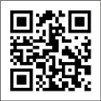資料紹介
Thomas A. Edison is supposed to have parried the question of a skeptic who wanted to know what one of his fledgling inventions was good for by asking “What good is a baby?”
**
is supposed to 〜 でshouldと同様の「~した方が良い、~すべき」というmodalityの意味となる。have parried のparriedは過去分詞系で、haveに続くことによって述語動詞の役割で後に続くthe questionを目的語とした、過去完了の「受け流した」の意味を表す。また、of a skepticで同目的語をthe question を修飾限定し、Who~(主格の関係代名詞)以降でa skeptic を連体修飾している。what 〜(名詞節を作る関係代名詞) は前置詞 for の目的格となる。"What good is a baby?"部分は、疑問文の直接引用でasking の目的語に値する。ちなみに、このgoodは形容詞ではなく、名詞のgoodであり、isはその補語である。
タグ
 All rights reserved.
All rights reserved.
資料の原本内容 ( この資料を購入すると、テキストデータがみえます。 )
Thomas A. Edison is supposed to have parried the question of a skeptic who wanted to know what one of his fledgling inventions was good for by asking “What good is a baby?”
**
is supposed to 〜 でshouldと同様の「~した方が良い、~すべき」というmodalityの意味となる。have parried のparriedは過去分詞系で、haveに続くことによって述語動詞の役割で後に続くthe questionを目的語とした、過去完了の「受け流した」の意味を表す。また、of a skepticで同目的語をthe question を修飾限定し、Who~(主格の関係代名詞)以降でa skeptic を連体修飾している。what 〜(名詞節を作る関係代名詞) は前置詞 for の目的格となる。"What good is a baby?"部分は、疑問文の直接引用でasking の目的語に値する。ちな...









